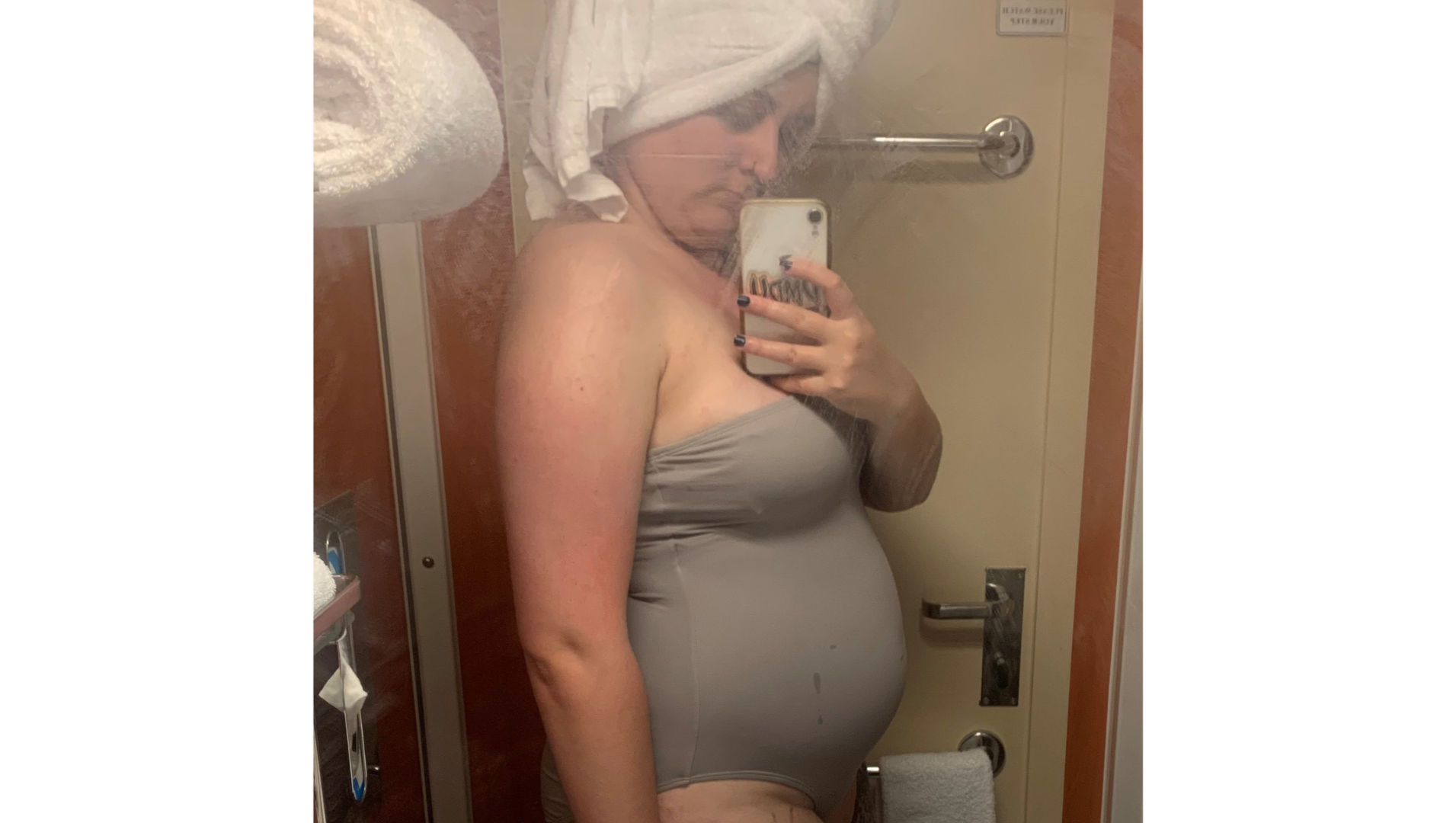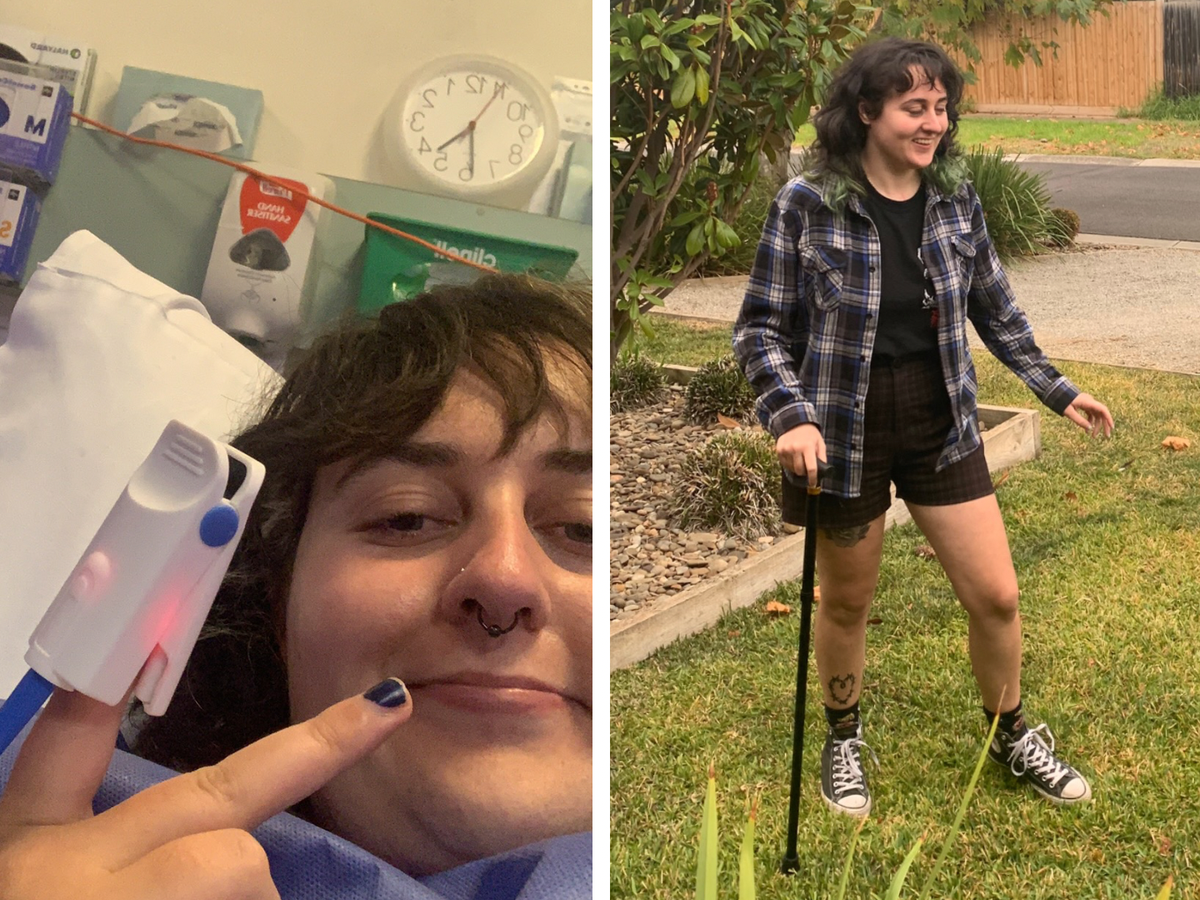I’m Erin, and I am seeking mutual aid / financial support for life-changing Advanced Laparoscopic Excision surgery to treat stage 4 endometriosis.
I have spent more time over the last 10+ years in hospitals and doctor's offices than I have doing the things I love - Learning and growing in community, going to gigs, seeing my friends and exploring the world. I finally have an opportunity once again honour all the hard work I have put into living a happy and healthy life, despite my circumstances. The possibility of living with less pain feels closer than ever, but I need support to make this happen.

From as early as the age of 12, I have been living with debilitating pelvic, abdominal and widespread pain. This pain would worsen around the time of my menstrual periods - I was often bleeding through my clothes, missing school and eventually, withdrawing from all the activities that gave my life meaning as a young person.
After years of seeking help from GPs and being placed on hormonal birth control with horrible side effects, I sought the advice of an OB-GYN. At 20, I underwent laparoscopic (or 'keyhole') surgery and woke up with a diagnosis of endometriosis. Knowing very little about the disease at the time, I was shocked to discover its prevalence, mismanagement and impact (a process of discovery which continues to this day).
I thought that I had finally caught what was causing me so much pain and suffering. However, the pain only got worse after surgery. In 5 years I have seen 4 gynaecologists, pain specialists, chronic pain rehabilitation programs and countless allied and alternative health practitioners. But it's been a steady decline (with a sharp downturn in the last 2 years) likely attributed to ineffective surgery and/or recurring/persisting endo lesions in my
body.
Hormonal medicines, lifestyle changes and community support can assist in the management of symptoms, but there is currently no known cure for endometriosis. An individual with 'endo' living in Australia spends an average of $30,000 in direct and indirect costs every year in order to manage their condition (Armour et. al. 2022:p, C31). Despite countless hours and dollars spent on conventional pain medication, physical therapy, lifestyle interventions, healthy diets and supplements, exercise programs, psychotherapy, mobility aids and alternative therapies, nothing could help me live the life I so desperately wanted to lead post-diagnosis.

Endo can cause severe period pain (dysmenorrhea) and adversely affect a person's fertility, but it has much broader implications. It can impact every aspect of a person's quality of life. Now at 25, I live with daily persistent pain and fatigue that have all but stopped my ability to work, maintain friendships, or even leave my home without support. I struggle with daily functioning, mobility issues, severe fatigue, weight changes and disordered eating (due to bowel and digestive dysfunction), sexual problems (hypertonic pelvic floor, dyspareunia and vulvodynia) cognitive issues, depression/anxiety and breathing difficulty.
Yet, endometriosis is scarcely acknowledged as the disabling condition that it is. Despite being a chronic inflammatory disease with no known cure, it is not recognised by the NDIS as a lifelong disability. Sufferers are forced to advocate for themselves, combat misinformation, and fight for their right to access a limited range of interventions that may or may not bring any relief.
The gold standard for the diagnosis and treatment of endometriosis is laparoscopic excision surgery, where the endometriosis cells are cut out of the body as safely as possible by a specialist surgeon. There are very limited true specialists trained to safely perform excision in Australia. Unfortunately, this means the procedure comes at a cost. I am thankful to have access to private health insurance and Medicare, but unfortunately even with these supports there will still be an out of pocket fee estimated at $6,000. I also have to factor in the expenses I will incur in my recovery and rehabilitation.
I am very fortunate to have a supportive partner and family who have helped me get this far, and I am so proud of my ability to adapt over the years, but my pain has gotten to the point that I am unable to carry on as I am. I have missed out on too much in my life already, and I want to be present for my community, family and myself for years to come.
Although surgery is not curative, it is my last shot at preserving my immediate health, functional capacity and quality of life for the future. Any contributions, big or small, will make a world of difference.

About Endo
Endometriosis is a disease where the tissue similar to (but NOT the same as) the lining of the uterus grows throughout the body. It is most commonly found in the pelvis, but has also been found on the bowel, bladder, diaphragm, lungs and more. Endometriosis can also cause painful cysts to form (endometriomas), as well as adhesions in the body's tissue that force organs to stick to the body and each other.
Many people with 'endo' will present with pelvic pain, pain at any time of their menstrual cycle (if present), period pain and cramping, heavy menstrual bleeding, bloating or abdominal pain, constipation and/or diarrhoea, pain with bowel movements or passing urine, leg pain and more. These symptoms are so often dismissed as 'normal' by doctors, misdiagnosed as IBS, or even put down to a mental health problem. Other symptoms that are often dismissed due to their prevalence include, but are not limited to; lower back pain, nerve pain, fatigue, nausea, mood issues and more.
Endometriosis is known to affect 1 in 9 people - It affects women, gender diverse individuals and has also been found in cis men in rare cases. Rather than a uterine disease as it is commonly believed to be and treated as, it affects multiple systems in the body. For a disease as common as diabetes, there is still so little known about what causes it, how it manifests differently and how it can be managed - As a result, it takes on average 8 years from the onset of symptoms to receive a diagnosis.
Before and after diagnosis, treatment options remain limited. Hormonal birth control is often used as a first line intervention, but this can only mask symptoms for some people while the disease continues to spread. Induced menopause is also used as a tool to suppress menstrual cycles, but the risk of health complications from this mean that it can only be used in the short term.
A person’s stage of endometriosis does not indicate their experience of pain, as this varies from person to person. The staging of endo is with regard to the depth of infiltration and surgical complexity of the disease. For some, simple analgesics are sufficient to manage pain. For others, it’s much more difficult. Strong opioids, nerve modulators, antidepressants and more off-label drugs are prescribed to patients willing to take a gamble on an array of side effects - But of course, these are not long-term solutions either.
A hysterectomy will NOT cure endometriosis. The cells that are known as endo have been found to be similar to the lining of the uterus (endometrium), but they are distinct in their composition. Endometriosis lesions and deposits can also produce their own estrogen. Therefore, removing the body’s mechanism for estrogen production (i.e. ovaries) will not necessarily bring relief to every person.
Ablation is commonly used on endo patients. It is a surgical procedure which involves burning the cells on the surface of the body's tissue, consequently leaving the root disease behind to grow back. It is useful for treatment of heavy menstrual bleeding by burning the lining of the uterus (the endometrium), but it can also cause irreparable damage to the surrounding bodily structures when used to treat endo (which exists outside of the uterus, and is NOT the endometrium).
Studies have shown (Pundir, Jyotsna et al. 2017) that outcomes are far greater and preferred for people undergoing excision surgery over ablation. Excision dramatically reduces the likelihood of disease recurrence and complications. Most OB-GYNs will know how to perform ablation, while It takes many years of learning and experience to specialise in endometriosis excision surgery.
Reliable endo sources:
Learn more about endometriosis treatment and excision here:

